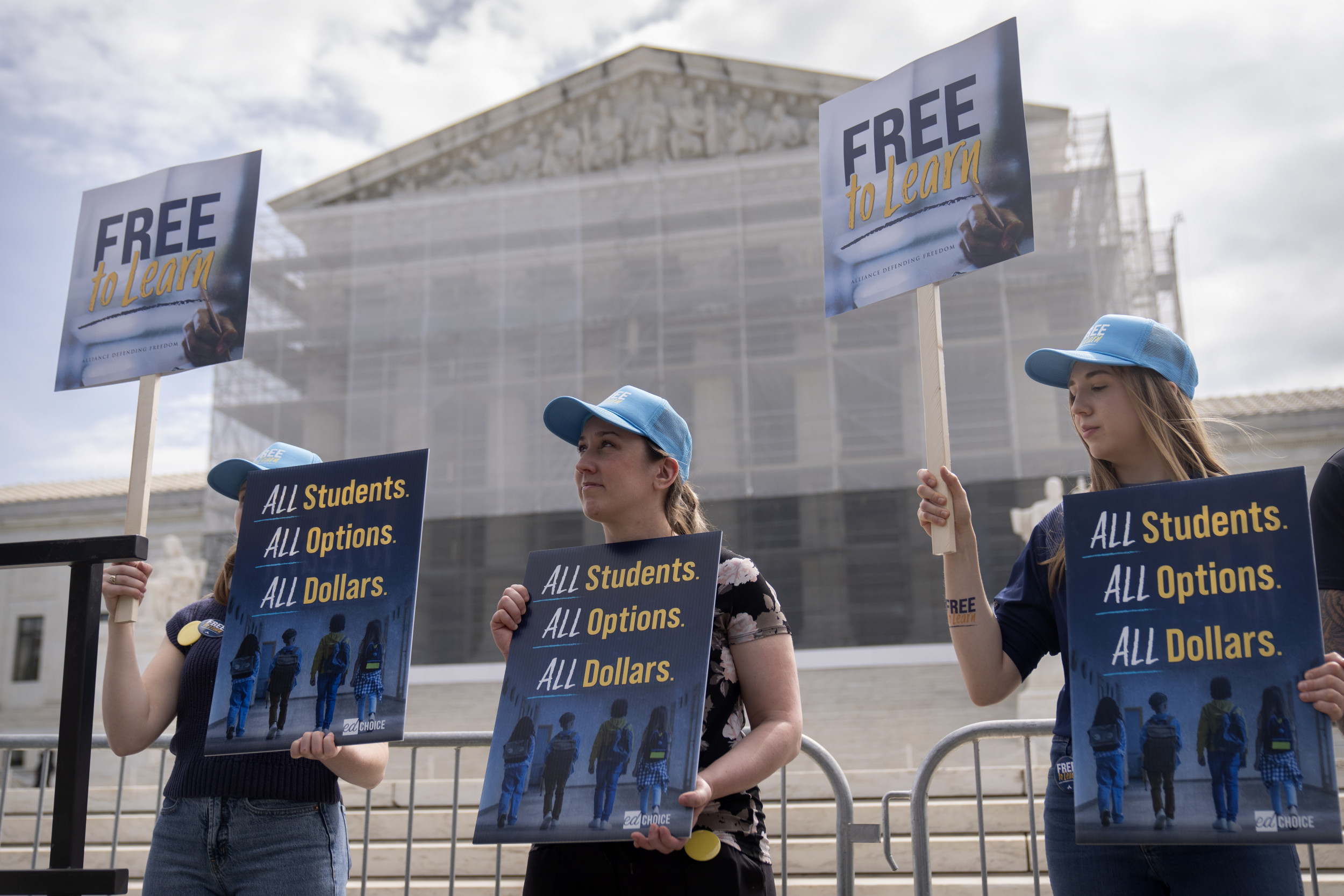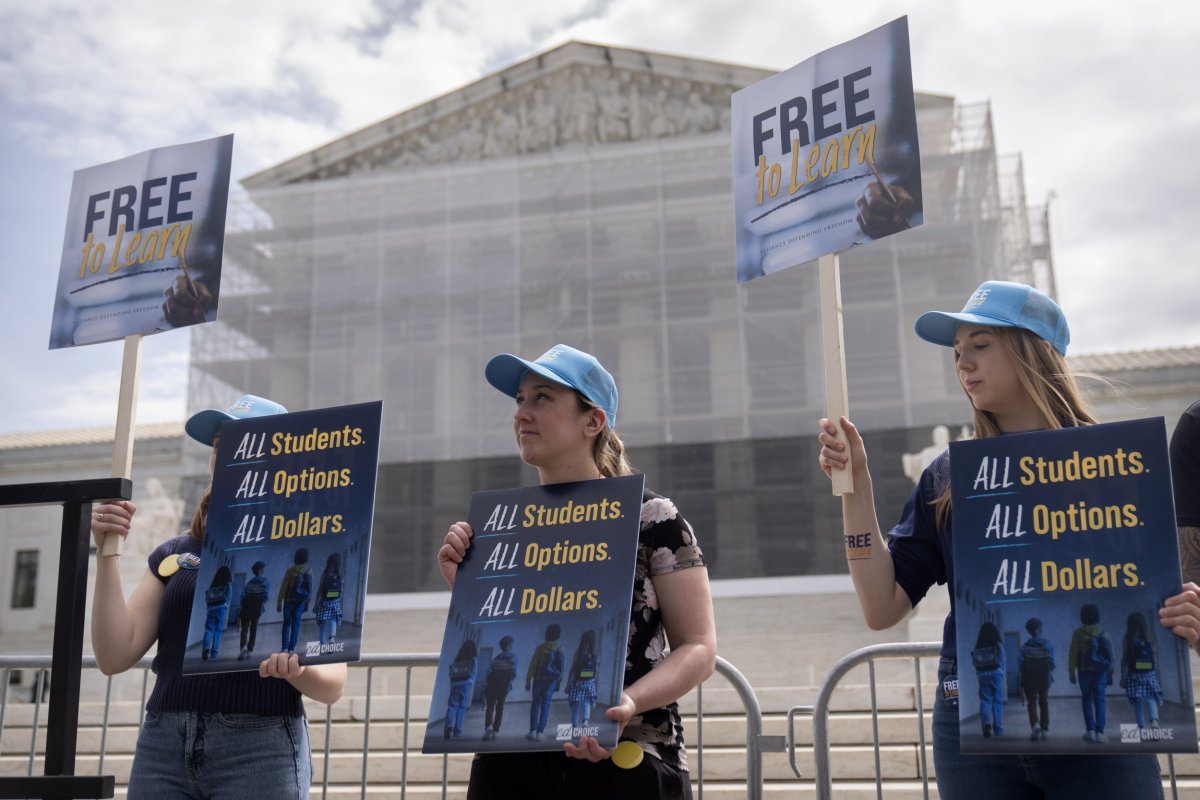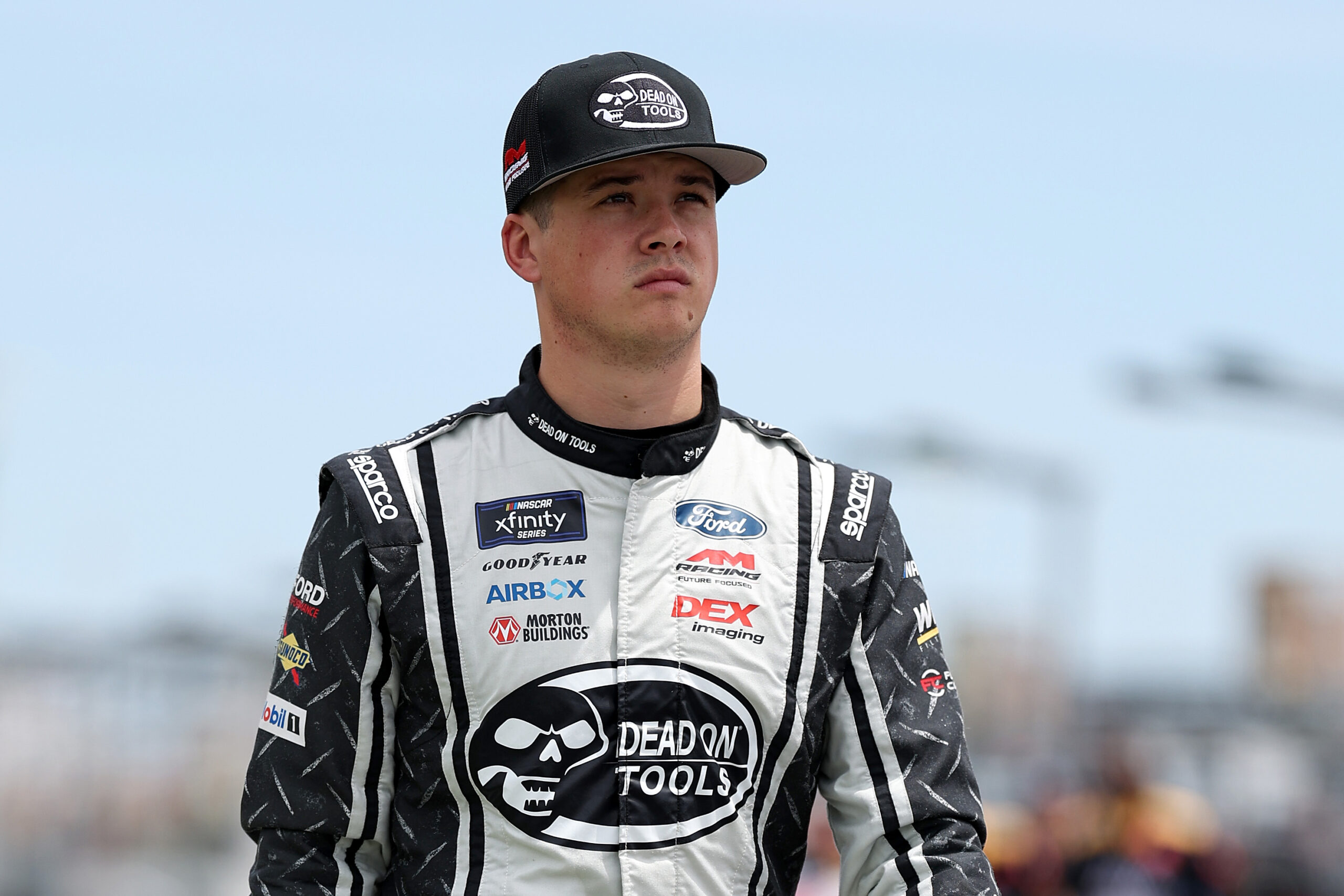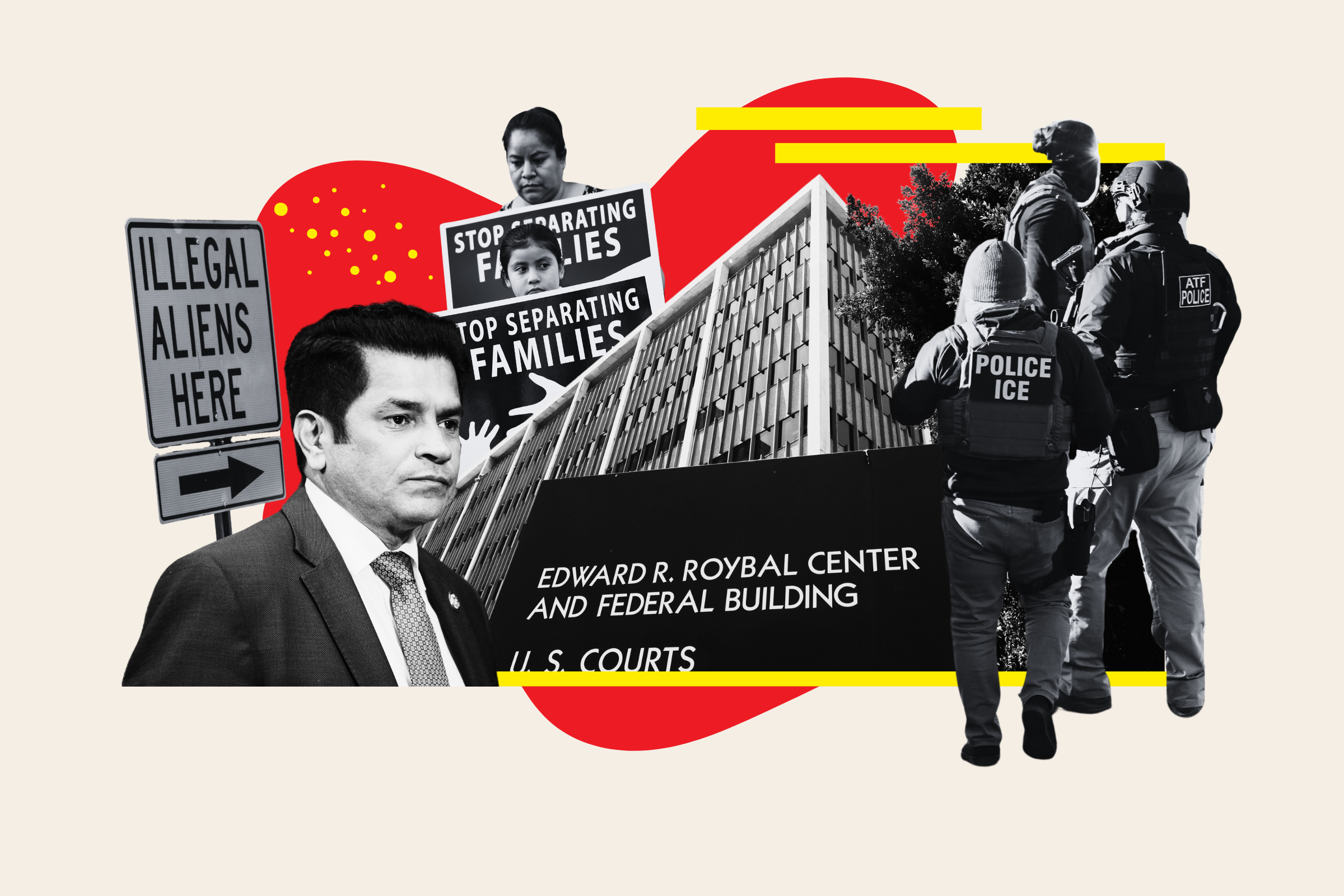
More than 14,000 people have signed a petition from Christian advocacy group Faithful America in efforts to stress the importance of church-state separation while warning that leaders in Oklahoma aim to “dismantle” that boundary.
The push comes amid the Supreme Court weighing whether the nation’s first publicly funded religious charter school can legally operate in the Sooner State.
“The Supreme Court seems to be open to demolishing the wall between church and state. When public dollars fund religious schools that can discriminate and exclude, we all lose. Our children lose. Our churches lose,” the Reverend Shannon Fleck, executive director of Faithful America, told Newsweek via email on Friday.
Why It Matters
The Supreme Court heard arguments this week in a case centered on St. Isidore of Seville Catholic Virtual School, a proposed K-12 charter that openly states its mission to evangelize students in the Catholic faith. Charter schools are considered public institutions in Oklahoma and nearly every other state, meaning they must abide by state funding and oversight rules.
Republican attorney general of Oklahoma, Gentner Drummond, sued Oklahoma Statewide Charter School Board to halt creation of the school, arguing it violated Oklahoma law and both the state and U.S. Constitutions.
The Supreme Court’s ruling could have significant implications for religious liberty and education, potentially opening the door for taxpayer funds to support religious schools.
Some conservative Christians back the charter school’s case, while others, like Faithful America, which is a progressive Christian organization, are opposing the move.

AP Photo/Mark Schiefelbein
What To Know
Faithful America, a Christian advocacy group that often shares petitions supporting religious freedom and opposing President Donald Trump, launched one in late April emphasizing that “the separation of church and state is an important legal construct that protects both our democracy and our churches from outside influence.”
As of Friday, the petition had more than 14,000 signatures and argues that the state’s effort to allow a religious charter school represents “an intentional attempt to dismantle this critical separation.”
“As a Christian and an Oklahoman, I am disgusted that our public education system is being used as a tool for religious indoctrination, especially while schools across Oklahoma are already struggling,” Fleck told Newsweek.
The state of Oklahoma approved formation of the school in 2023, but the following year, the state Supreme Court ruled it violated the Constitution and blocked the decision.
The nation’s highest court heard arguments on Wednesday, and Fleck said the justices’ commentary serves as an “indication the Supreme Court may be on the verge of abandoning one of the bedrock principles of our democracy.”
The First Amendment prohibits the government from establishing a national religion and protects individuals’ rights to freely practice their faith.
Justice Amy Coney Barrett has recused herself due to her friendship with a St. Isidore adviser, and it appears that the court could be divided, with Chief Justice John Roberts potentially casting the deciding vote.
“This is a wake-up call for every American who believes that the government should never weaponize faith,” Fleck told Newsweek.
Supporters of charter schools and Christian education rallied outside the Supreme Court on Wednesday.
What People Are Saying
The Freedom From Religion Foundation on Friday posted to X, formerly Twitter: “Let’s be clear: No one is ‘banning Catholic schools.’ Religious institutions like St. Isidore are free to exist and educate as they wish — just not on the public’s dime.”
In another post, it wrote that the plaintiffs’ demands are “unprecedented: direct government funding of a church-run school that openly admits it will discriminate based on religion, sex, gender identity, and sexual orientation.”
Supreme Court Justice Ketanji Brown Jackson said during oral arguments: “Using history in this case is crazy because during early history, no one thought there was an obligation of the government to provide funding [for schools] at all. We don’t use the history of segregation to interpret the equal protection clause now. I doubt very much we would use that history of the federal government funding the churches to teach Indian children and convert them as proving anything about the free exercise or establishment clause now.”
Supreme Court Justice Brett Kavanaugh said on Wednesday: “All the religious school is saying is, ‘Don’t exclude us on account of our religion.’ … Our cases have made very clear—and I think those are some of the most important cases we’ve had—of saying you can’t treat religious people and religious institutions and religious speech as second class in the United States.”
Drummond said in an October statement: “This unconstitutional scheme to create the nation’s first state-sponsored religious charter school will open the floodgates and force taxpayers to fund all manner of religious indoctrination, including radical Islam or even the Church of Satan. My fellow Oklahomans can rest assured that I will always fight to protect their God-given rights and uphold the law.”
Kevin Stitt, Oklahoma’s Republican governor, wrote on X last week: “No one should have the authority to tell a parent how to educate their child. St. Isidore has every right to offer families a faith-based education. I’ll keep fighting back against big-government politicians who think they know better than parents.”
What Happens Next
The nation’s High Court concluded final arguments in the case on Wednesday. It then enters deliberations and typically releases opinions by the end of June. If a split vote occurs, the lower court ruling will stand, effectively blocking St. Isidore from operation as a publicly funded religious charter school.





